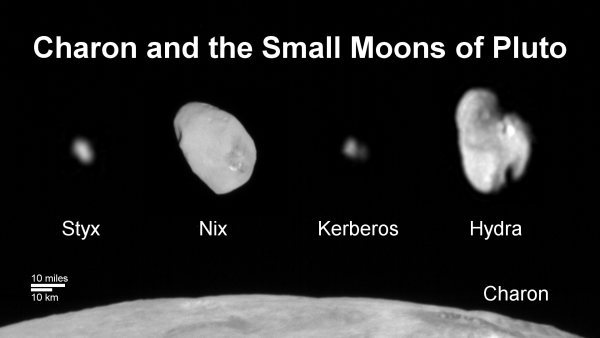
Posted on 03/13/2020 10:29:53 PM PDT by BenLurkin
A new paper describes how the researchers connected the moving dots to find the new TNOs, and also says this new approach could help look for the hypothetical Planet Nine and other undiscovered worlds.
The Dark Energy Survey (DES) is designed to probe the origin of the accelerating universe and help uncover the nature of dark energy by measuring the 14-billion-year history of cosmic expansion with high precision. It studies galaxies and supernovas and precisely tracks their movements. This survey has been active since 2013, using the 4-meter Blanco Telescope located at Cerro Tololo Inter-American Observatory (CTIO) in Chile. The telescope is outfitted with the Dark Energy Camera (DECam), one of the most powerful digital cameras ever.
While DES wasn’t specifically designed with TNOs in mind, its wide field of view (about 14 of our Moons would fit in its focal plane) and its ability to track moving objects make it particularly adept at finding new things out beyond Neptune. It can measure movements in the field of view as frequently as every hour.
The DES team realized early on they were seeing TNOs in their datasets, and in 2015, with a little over 2 years of observations researchers on the team announced finding sixteen previously unknown outer solar system objects.
The location of the newly found TNOs range from 30 to 90 AU (astronomical units), or 30 to 90 times Earth’s distance from the Sun. Pluto is about 40 AU.
(Excerpt) Read more at universetoday.com ...

A trans-Neptunian object (TNO), also written transneptunian object, is any minor planet or dwarf planet in the Solar System that orbits the Sun at a greater average distance than Neptune, which has a semi-major axis of 30.1 astronomical units (AU).
I agree that’s no moon, but it’s no planet either. Dwarf planet is a perfectly good description for a large asteroid or ball of ice that doesn’t have enough mass to dominate its own orbit. It was literally pushed out of the way by Neptune early in its history.
...but it has enough mass to accumulate these guys...


...and if Alan Stern thinks it's a planet, then it's a planet. I like his explanation, which basically says the scientists were driven by memorization fear than science:
...Nowhere else in astronomy is there any definition that was specifically engineered to limit the number of objects to something that you can memorize... "when the world was quaint, and our knowledge was limited, and we only knew of 9 planets, you could know their names...then scientists...said 'this will tarnish our reputation, you know, school children won't be able to remember them...you know what I said? 'we're gonna go back to 8 states now?'...
Stern says "a planet is an object in space that's large enough to be rounded by its own self-gravity." That works for me.
I’m just a dopey guy in FR. This issue is up to the experts, is DOES matter, and that was Stern’s point. He argues that the definition of a planet was altered to cap the number at 8. Stern argues that the definition should be true and if the number of planets grows to 27, then so be it. His analogy, about the Periodic Table, is compelling.
Missing socks wind up in the hoseone layer.
The demotion of Pluto was a political act by a supposedly scientific org, was a gratuitous and unnecessary action, carried out to belittle the US. IMHO of course. I'll stick with David Levy's view:
"To Pluto And Far Beyond" By David H. Levy, Parade, January 15, 2006 -- We don't have a dictionary definition yet that includes all the contingencies. In the wake of the new discovery, however, the International Astronomical Union has set up a group to develop a workable definition of planet. For our part, in consultation with several experienced planetary astronomers, Parade offers this definition: A planet is a body large enough that, when it formed, it condensed under its own gravity to be shaped like a sphere. It orbits a star directly and is not a moon of another planet.
If that IS what works, then how many known planets ARE in our solar system?
 |
||
| · join · view topics · view or post blog · bookmark · post new topic · subscribe · | ||
| Google news searches: exoplanet · exosolar · extrasolar · | ||
Disclaimer: Opinions posted on Free Republic are those of the individual posters and do not necessarily represent the opinion of Free Republic or its management. All materials posted herein are protected by copyright law and the exemption for fair use of copyrighted works.